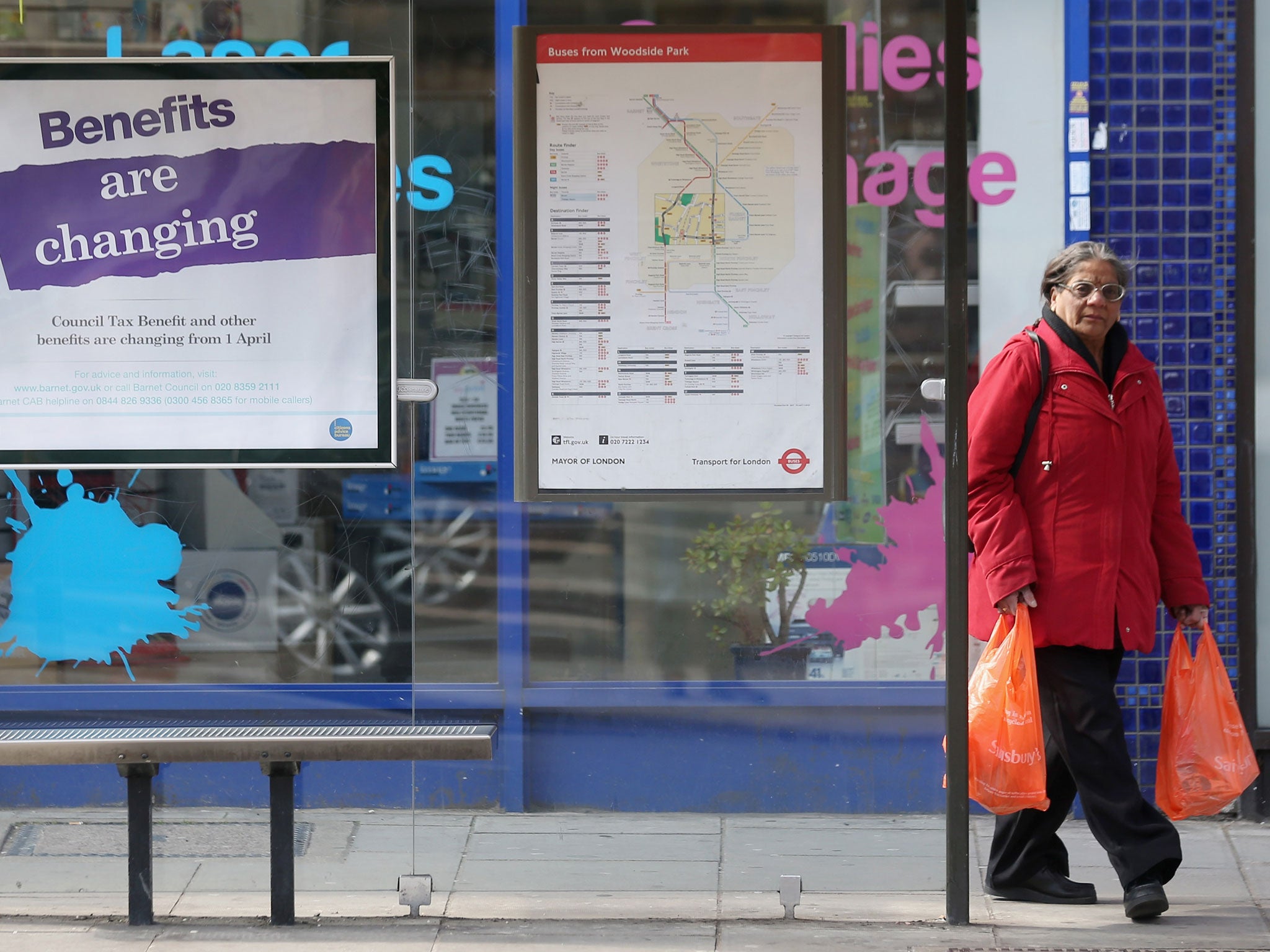Women to lose nearly £4bn in latest household budget cuts
Changes to benefits and personal taxation mean the female population is hit hardest

Nearly 94 per cent of the cuts to household budgets this year will directly hit women, new figures revealed last night, as the battle over benefits switched to tax.
Cuts to child benefit and tax credits, and changes in personal taxation, that take effect in 2013-14 amount to a net £4bn off the family budget – £3.778bn of which comes from the purses of women, according research provided by the House of Commons Library for the Shadow Minister for Women and Equality, Yvette Cooper, who last night accused David Cameron and George Osborne of "shutting their eyes" to the impact their decisions were having on women, at the same time as cutting tax for the richest.
The research shows that 85 per cent of those on incomes over £150,000 who will benefit from cutting the 50p top rate of tax to 45p are men, and just 15 per cent are women. But other changes in benefits and taxation which came into effect this weekend are hitting women disproportionately harder than men. This is because women are often more likely to be on lower to middle incomes, are in receipt of child benefit or tax credits as the primary carer of children, or are listed as the named recipient for payments such as housing benefit. And they are more likely than men to work in the public sector, which is affected by pay restraint this year.
Analysis of all the measures that come into effect this weekend, for the year 2013-14, shows that men as a whole gain £2.777bn, while losing a total of £3.033bn, leaving a net loss of £257m across the male population. Women gain a total of £2.838bn – mainly due to the increase in the starting rate for income tax – but they lose a total of £6.617bn, a net loss of £3.778bn.
Some 98 per cent of people who lose out on child benefit cuts are women. Women comprise 65 per cent of those affected by public sector pay restraint, 80 per cent of those affected by the housing benefit cap, 60 per cent by the council tax benefit real-terms cut, and 78 per cent by cuts to tax credits.
Ms Cooper said: "These figures are stark proof of the deep unfairness in the Government's policies. This year's changes are worst of all – with cuts to child benefit, tax credits and maternity pay all hitting women hardest, while millionaires get a big tax cut.
"David Cameron and George Osborne are shutting their eyes to the impact of their decisions on women. This shows they haven't a clue about the pressures families are facing."
As debate rages in Westminster between all parties over fairness, taxation and welfare, the former Liberal Democrat minister for children and families, Sarah Teather, today ratchets up the pressure on the Government over its treatment of those on welfare in the wake of the Philpott case.
Below, Ms Teather says the coalition risks leaving the country a "more divided, more brutal and more selfish" one than the one it inherited by "demonising" recipients of welfare, as well as immigrants. In a pointed reference to her Lib Dem ministerial colleagues, she said it was not enough "to leave irresponsible suggestions hanging, unopposed in the milieu of rotten argument. The marginalisation of immigrants and the poorest in public perception is tangible. Silence will only entrench it further."
But research by Ipsos Mori into British social attitudes reveals how voters have become gradually more hostile towards those on benefits over the past 20 years. The survey is part of a study being conducted by Ipsos Mori and Demos for the Joseph Rowntree Foundation, which will be published this summer.
In 1993, 55 per cent of people agreed with the statement that "benefits for unemployed people are too low and cause hardship". But in 2011, the latest year figures are available, only 19 per cent agreed. Similarly, 54 per cent in 1993 agreed that "the Government should spend more money on welfare benefits for the poor", while in 2011 only 28 per cent agreed.
Bobby Duffy, managing director of Ipsos Mori, said: "Views of the welfare system have hardened over the past few years – but this analysis also makes clear that there has been a generational shift. Younger generations don't have anything like the connection to the welfare state that previous generations have, and that's a real challenge for the future."
Duncan O'Leary, deputy director at Demos, said the findings "strengthen the hand of those who want to reduce welfare entitlements and poses a big challenge for their opponents, who must convince an increasingly sceptical public".
Subscribe to Independent Premium to bookmark this article
Want to bookmark your favourite articles and stories to read or reference later? Start your Independent Premium subscription today.

Join our commenting forum
Join thought-provoking conversations, follow other Independent readers and see their replies